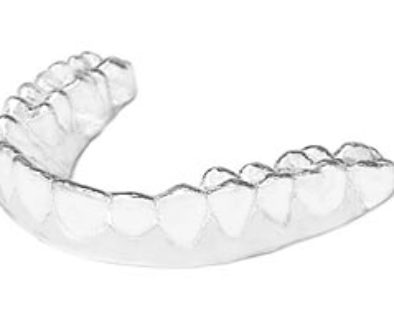How Do I Know If I Need A Root Canal?
 I get asked in person or online almost every single day about how to know when someone will need a root canal. Most people are understandably concerned when they start to have sensitivity, biting discomfort, or other unusual symptoms. Quickly your mind can jump to the worst case scenario and all of a sudden you’re thinking “I might need a root canal?!?! Oh no!”.
I get asked in person or online almost every single day about how to know when someone will need a root canal. Most people are understandably concerned when they start to have sensitivity, biting discomfort, or other unusual symptoms. Quickly your mind can jump to the worst case scenario and all of a sudden you’re thinking “I might need a root canal?!?! Oh no!”.
Let’s go over what your dentist looks for and what you can look for to know whether you need a root canal.
Sensitivity
Sensitivity to hot or cold can be the first sign that something is going wrong with your tooth… or it can be nothing at all.
When you’re ok…
If something hot or cold hits your tooth and you have a quick, painful sensation that goes away in a couple of seconds, this is fairly normal.
When you need a root canal…
If that same hot or cold hits your tooth and it continues to hurt for 15-20 seconds or even minutes, the nerve is likely in the process of dying and you’ll need a root canal.
Pain
Tooth pain comes in a variety of ways. There can be aching, shooting, throbbing, stabbing, electrical, burning, tingling, constant, dull, or severe pains. You can have a combination of these.
When you’re ok…
A dull ache or occasional minor sharp pains aren’t terribly unusual. These can be the sign that you have a cavity, bit on something wrong, or are having sinus problems. As long as it doesn’t become severe, these don’t usually signal the need for a root canal.
When you need a root canal…
Constant severe pain that comes on all by itself or after a stimulus of some sort is not normal. This almost always indicates that you need a root canal. Pain that is strong enough to wake you up at night is a great indicator of this as well. Most of the time, this type of pain comes presents as a throbbing severe pain. Most people say it feels like the tooth throbs along with your heartbeat.
Swelling
Swelling is usually the sign of infection. Figuring out whether it is related to your tooth or not is the big trick in knowing whether you need a root canal.
When you’re ok…
A number of things other than an abscessed tooth can show up as swelling of the gums, lips, or cheek. The most common are related to gum disease of some sort. Gum disease is a chronic, long term infection of the gums around your teeth. Occasionally this infection can get out of control and cause some significant swelling. Other less likely things that can cause swelling include mucoceles, fibromas, other growths, or trauma.
When you need a root canal…
Swelling that is associated with an infection of your tooth (an abscessed tooth) means you most definitely need a root canal. The nerve inside the tooth has died and all this tissue inside has now become infected. The tooth acts as a constant source of infection that affects the bone and other tissues around your tooth. A root canal removes all this infected tissue and allows your body to heal.
If your tooth is abscessed you’ll usually have pain when you touch the tooth or bite with it. The swelling typically occurs next to or around the tooth but can also move further away so that it looks like it is coming from somewhere else.
Biting pain
Biting pain is another one of those tricky ones. Biting pain can be related to an infection, trauma, a failing filling, or a cracked tooth.
When you’re ok…
A failing filling or cracked tooth don’t always mean you need a root canal. You may just need a new filling or crown instead. Cracked teeth are more likely to need a root canal in the future though.
Some people also have trauma to teeth as a result of an accident or from grinding and clenching their teeth. This can lead to pain, especially when biting. If you’ve had recent trauma give the tooth some time to settle down before jumping to the conclusion you need a root canal. If you’re a grinder consider investing in a night guard to reduce the force on your teeth.
When you need a root canal…
An infected tooth means you definitely need a root canal. No way out of this one.
A cracked tooth that has developed significant pain, sensitivity, or in which the crack extends into the nerve means that it would need a root canal.
Large cavities
Cavities are no fun. Large cavities are even less fun, especially when you end up needing a root canal. X-rays of your tooth can show the rough extent of a cavity but don’t tell the whole story. Your dentist will only know it’s full extent once they clean it all out of the tooth.
When you’re ok…
If the cavity doesn’t extend to the nerve of the tooth once your dentist removes it, then you’re in the clear, at least for the time being. If it is really close to the nerve you may develop symptoms in the future that mean you need a root canal. Most dentists try to avoid going into the nerve space when at all possible in order to give your tooth a chance.
When you need a root canal…
If the cavity is removed and the nerve of the tooth is exposed then it will need a root canal. In very rare cases where the opening to the pulp chamber is only a pinpoint your dentist may do what is known as a pulp cap and try to let the tooth heal itself. Long term, you’ll probably still end up needing a root canal at some point.
This can be a good guide of whether you need a root canal, but it is important to know that there are many times when you could need a root canal without even knowing it. I’ve seen plenty of infected teeth or teeth with extremely large cavities in which the person had no idea there was a problem at all. The best prevention for root canals is good oral hygiene, reducing sugar and acid in your diet, and seeing your dentist consistently so they can catch things early.




March 7, 2018 @ 3:54 am
Did you know that sometimes you can have no symptoms at all? I had no idea my tooth was so infected until I scheduled an appointment with a dentist in Alpharetta. Luckily he explained to me how easy they were and in just a week my tooth was fixed and I had a brand new dental crown!
April 11, 2017 @ 5:33 pm
A great primer on the indicators for patients as to when they may require a root canl.
April 6, 2017 @ 3:27 pm
I can see why sensitivity would be a sign that you need a root canal. My molars have started to hurt over the past couple of months. I definitely think that I should consider finding a dentist that could help me to recover before it gets to be too painful.
Why Does My New Filling Feel Weird? | The Healthy Mouth Project
February 14, 2017 @ 10:02 pm
[…] irritated beyond repair. In these situations you would need a root canal. Check out our article on how to know if you need a root canal for more information on that […]